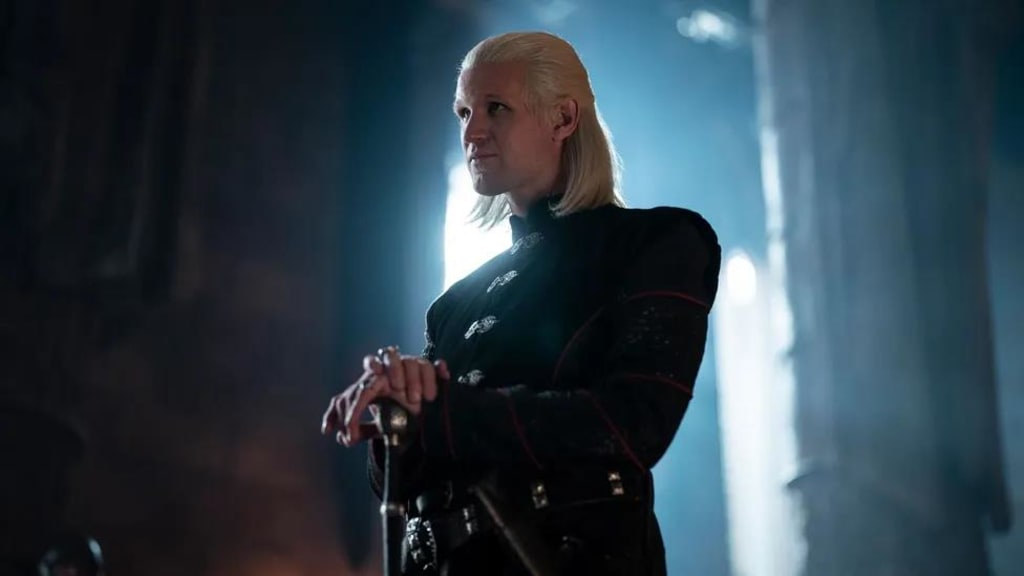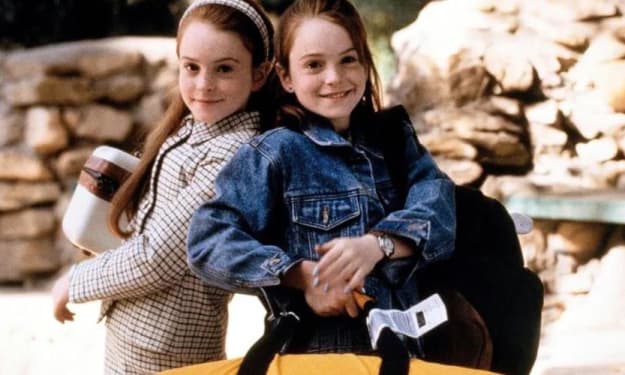House of the Dragon review: It's 'pure Game of Thrones'
HBO's big-budget Game of Thrones prequel is "a rich, textured work, sharply written and handsomely directed", which is darker and more sophisticated than the original, writes Stephen Kelly.

It is a remarkable twist of fate that Game of Thrones – the biggest TV phenomenon of recent times, and perhaps the most influential show of the 2010s – has spent its afterlife being considered something of a failure. This is not true, of course: just take the array of desperate attempts to make "the next Game of Thrones". But the show's final season – criticised by many for feeling rushed and truncated – does hang heavy over its first spin-off series, House of the Dragon. After all, a prequel set more than 100 years before the main story, being released in a time of diminished good will, has a relatively tough task in overcoming cynicism and indifference. And yet, as it turns out: the best way to make "the next Game of Thrones" is simply to make more Game of Thrones.
House of the Dragon is adapted from portions of George RR Martin's 2018 book Fire & Blood, which recounts the history of the Targaryens, the blonde-haired, dragon-riding house who ruled the Seven Kingdoms of Westeros for nearly three centuries. As the opening text informs us, this story picks up 172 years "before Daenerys Targaryen", and in the ninth year of the reign of Viserys Targaryen (Paddy Considine), a king whose line of succession is in peril.
His wife Aemma (Sian Brooke) is pregnant, although there is no guarantee that she will give birth to a male heir. If she doesn't, then the Iron Throne will fall to Viserys's brother, Daemon, a wild and potentially tyrannical ruler played with deliciously dark panache by Matt Smith; or – in a break with tradition – Viserys's teenage daughter Rhaenyra (initially played by Milly Alcock), whose claim is destined to be resisted because "men would sooner put the realm to the torch than see a woman ascend the Iron Throne". Over the course of the six episodes made available to critics, it soon becomes obvious that this line forms the spine of House of the Dragon's themes and raison d'être.
This is a story explicitly about the injustices and indignities of being a woman under a patriarchal system: whether that means being traded like a commodity for a politically convenient marriage, being held to unequal standards in terms of desire and behaviour, or being reduced down to the machinery of reproductive organs. "The child bed is our battlefield," Aemma tells Rhaenyra in episode one, and this later comes to pass in a fantastically visceral sequence in which the rattle of sword against shield, the screams of men in pain, are interspersed with the bloody violence of childbirth. It is not the last of such scenes either. In Westeros, pregnancy is a dangerous leap into the dark.
This is a darker, more solemn, more sophisticated piece – one that lacks the broad, accessible strokes of early Game of Thrones, or its vibrant, colourful characters
House of the Dragon differs from Game of Thrones in various ways, although it is remarkable how much it initially looks and feels like a natural continuation of the show. It is a pleasure to be back in this world, to be transported so effortlessly through the evocative grandeur of its score (composed again by Ramin Djawadi) and set design; to sit through those long, talky small council meetings, where someone will say something like, "my lords, the growing alliance among the free cities has taken to styling itself 'the triarchy'". Heaven.
Much like Game of Thrones' early days, it starts out measured and relatively modest, taking time to build its characters, establish their quirks, their wants, their relationships, their conflicts. It gradually manoeuvres them into positions that suggest nothing but the most unavoidable bloodshed on the horizon. It's a rich, textured work, sharply written and handsomely directed, with a budget that far outstrips season one of Game of Thrones. There are lavish dragon sequences from the start, for instance, while it's notable that the third episode features an enormous celebratory hunt, full of sets and extras. In early Game of Thrones, a similar sequence consisted of a small group of characters in some woods – a bugbear of George RR Martin, who originally wrote the hunt as befitting of a king.
The budget is not the only major difference between Game of Thrones and House of the Dragon, however. Showrunners Ryan Condal, a newcomer to Game of Thrones who has a close relationship with Martin, and Miguel Sapochnik, the director behind some of the show's most striking episodes, were said to be inspired by Gabriel García Márquez's 1967 novel One Hundred Years of Solitude, which tells the story of a single family across generations. Similarly, each episode of House of the Dragon jumps forward in time: a little at first, enough for the birth of babies, or to show the passing of war, but then in episode six it jumps 10 years into the future.
It is here that the show begins to feel like a fantastical version of The Crown, as Rhaenyra is recast with the formidable Emma D'Arcy, and her former friend Alicent Hightower (initially Emily Carey), becomes Olivia Cooke, who plays a desperate, scheming queen. In Martin's book Fire & Blood, which is written from the perspective of an Archmaester putting down Westeros's history, he writes that "wars often begin in times of peace". The structure and pacing of House of the Dragon does a deft job of exploring how the coming Targaryen civil war, known in future Westeros as the Dance of the Dragons, has been generations in the making: built bit-by-bit by decades of petty resentments and mistakes.
It is a treatment that makes House of the Dragon a strange beast: undoubtably similar, at least superficially, to Game of Thrones, but distinct in ways that could prove alienating for anyone looking for the exact same kind of high. From the outset, this is a darker, more solemn, more sophisticated piece – one that lacks the broad, accessible strokes of early Game of Thrones, or its vibrant, colourful characters. There is not a Joffrey to hate here, or a Tyrion to root for. These people are complex in ways that can often make them opaque and challenging, perhaps even unlikeable. But that doesn't mean they're not interesting.
Rhaenyra, for example, initially presents herself as the Arya of the piece, a ballsy girl fighting against the system, but makes decisions that are dubious to say the least. Similarly, it would be easy to paint Alicent, the future wife of Viserys, as the show's Cersei. She is, after all, a sly operator behind the scenes, and appears to be orchestrating Rhaenyra's downfall. But unlike Cersei she is motivated by more than greed and ambition: she lives in perpetual fear of what will happen when her husband dies and Rhaenyra ascends to the throne. As Alicent's father Otto (Rhys Ifans) warns her: because Rhaenyra is a woman, her claim will be opposed, and in that scenario she will have no choice but to slaughter anyone who is a rival for the throne – including Alicent and her children.
It's a fascinating situation, full of understandable motives and moral quandaries, and a ticking time bomb in the form of King Viserys's health. It's pure Games of Thrones – just not in the way you remember.
About the Creator
Cindy Dory
When you think, act like a wise man; but when you speak, act like a common man.






Comments
There are no comments for this story
Be the first to respond and start the conversation.